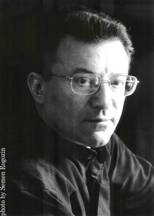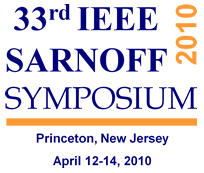Leonid I. Perlovsky
Harvard University, and Air Force Research Lab.,
Communicating with Understanding
Cognition, Language, and Emotions
Tuesday, April 14, 2010
Abstract
Communications today are intended for human understanding. Computers transfer contents of images, texts, and speech into communicable codes, but do not understand these contents. Future communication systems will understand the meanings of what is communicated, will understand user needs, and will be a part of integrated human-computer systems, in which computers and human users will learn from each other. Cognitive research indicates that emotional mechanisms are fundamental to cognition and to interaction between cognition and language.
Developing cognitive algorithms for understanding text, language, and surrounding world has met difficulties since the 1950s. The talk briefly reviews past mathematical difficulties of artificial intelligence and new mathematical techniques of dynamic logic (DL), which overcome these difficulties. DL evolves fuzzy concepts and contents into crisp ones. Computational, cognitive, and neural mechanisms of concepts, emotions, instincts are described; they are inseparable from perception and cognition. Engineering applications illustrate orders of magnitude improvement in recognition, data mining, fusion, financial predictions. DL is extended to language, to mechanisms of joint operations of language and cognition, and to understanding complex situations. The brain imaging experiments have confirmed mechanisms of DL and language-cognition interactions in the human brain.
Algorithms involving emotional, conceptual, and language mechanisms are still at an incipient stage. The talk discusses the current state of art and future research directions. These include developing future adaptive self-improving web tools capable of learning and understanding contents, web search engines with human level understanding, relating engineering algorithms and human instinctual mechanisms, emotional intelligence and emotional contents of languages, understanding differences among languages and cultures in their emotional contents, and developing approaches to improve inter-cultural communication.
Biography
Dr. Leonid Perlovsky, Visiting Scholar at Harvard University, Principal Research Physicist and Technical Advisor at the Air Force Research Lab; leads programs on cognitive algorithms, language understanding, language-cognition interaction, semantic web. As Chief Scientist at Nichols Research, a $0.5 B high-tech organization, he led the corporate research in intelligent systems and neural networks; served as professor at Novosibirsk and New York Universities; participated as a principal in startups developing neural tools for language learning, search engines, biotechnology, and financial predictions. Before 9/11 his company predicted the impending financial crash by detecting ripples of financial manipulations of Al Qaeda. He delivered invited keynote plenary talks and tutorial lectures around the globe, published more then 350 papers, 11 book chapters, and 3 books, including “Neural Networks and Intellect,” Oxford University Press, 2000 (currently in the 3rd printing). Dr. Perlovsky organizes conferences on Computational Intelligence, leads the IEEE Task Force on “The Mind and Brain,” serves on the Board of Governors of the International Neural Network Society, on Editorial Boards of six journals, including IEEE Transactions for Neural Networks and Editor-in-Chief for “Physics of Life Reviews,” which he started jointly with Nobel Laureate I. Prigogine. He received several National and International Awards, including McLucas Award 2007, the highest AF scientific award, and Gabor Award 2007, the highest engineering award from the International Neural Network Society. |








